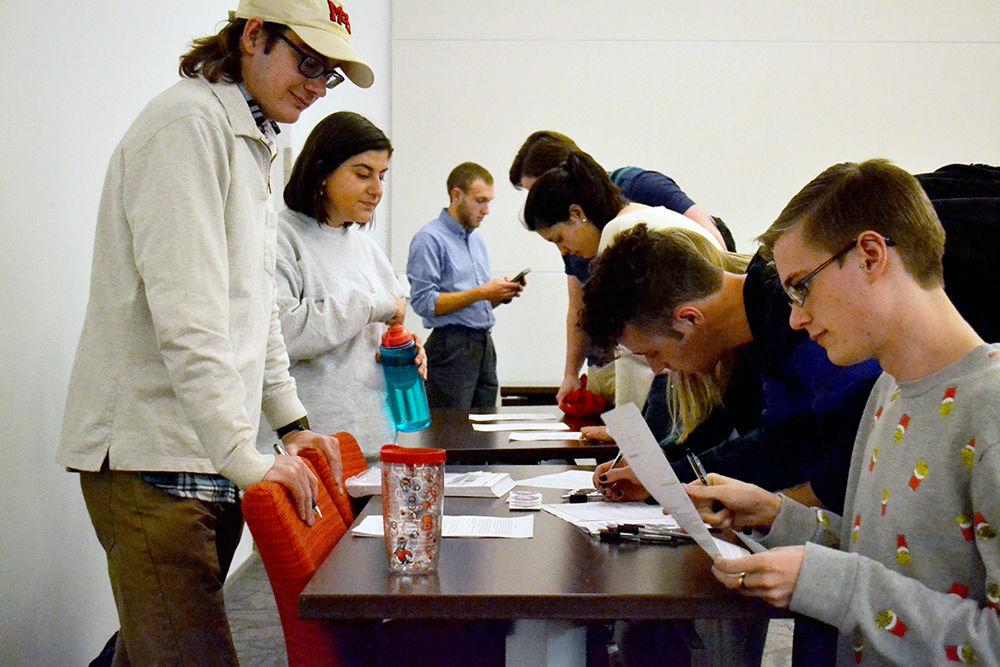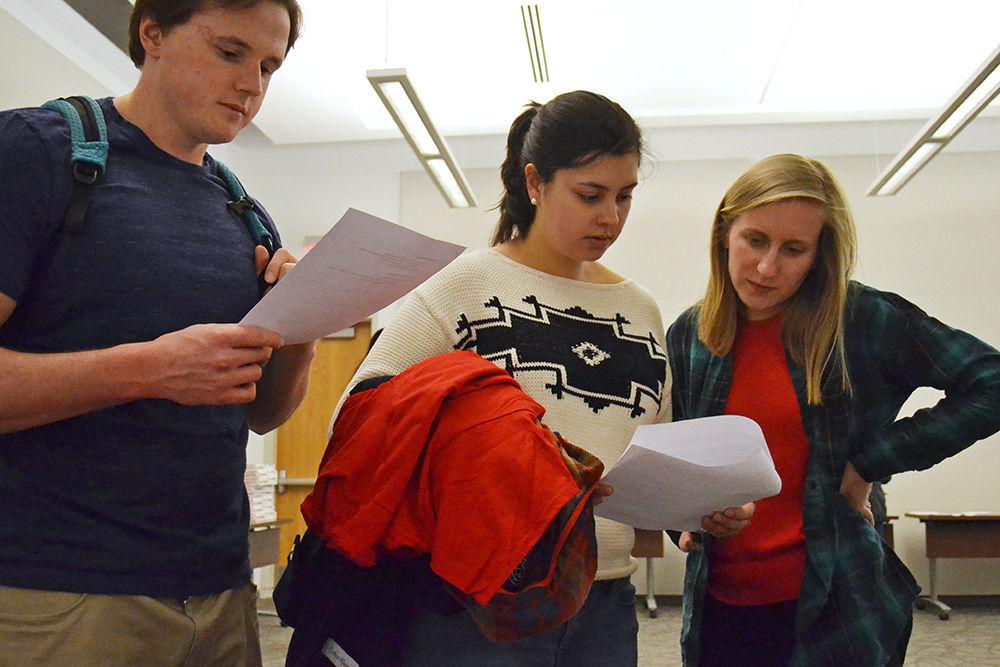With the 2018 congressional primary elections coming up in May, Student Government gave students the opportunity to not only register to vote, but also learn more about their North Carolina district candidates.
Monday evening, students attended the 2018 Voting Jamboree to educate themselves about the candidates in their congressional districts. Dalton Clark, a fourth-year studying political science and Government Relations director, helped to organize the event and said that the 2018 election year is especially important because of potential political turnover.
“Some would say that the political climate today is unlike any other and that turnover could be the greatest that we’ve seen,” Clark said. “It’s something that we’ve seen multiple times, that after we’ve had a two-term [president], our houses are going to flip, so we just wanted to make sure that each and every person was involved in such an important year.”
Clark also said that the purpose of the event was to inform NC State students and make sure that they are staying involved in the political process because students have a history of not voting.
“The big thing that we wanted to do was make sure that NC State students are going to be involved,” Clark said. “It’s something that’s kind of been a tradition that we’ve fallen short of over the last couple years of NC State students not showing up at the polls as much as we would like to have it. Our logo that we are using is ‘Pack the Polls’ because that’s exactly what we want to do, we want NC State to pack the polls and we just need to make sure that each and every person at NC State has the opportunity to learn a little bit about their district.”
The event included tables representing the 13 different districts in North Carolina with descriptions of each candidate. Students were also able to register to vote with the help of NC State’s division of NCPIRG (North Carolina Public Interest Research Group).
Victoria Pittman, a first-year studying history and philosophy and an intern at NCPIRG, said she wanted to help students register because they are impacted more by local elections.
“All politics are local,” Pittman said. “Our local politics and state politics are going to affect us probably more directly than national politics — it affects our taxes, our schooling, our bussing, everything. People tend to skip the smaller primaries but that’s going to affect you more in the end.”
Like Clark, Pittman also emphasized that 2018 would be a big year for voting.
“I’ve felt a lot of energy since the last election just on campus and in high schools even, I think it’s a big deal,” Pittman said. “We’re realizing that our voices do matter and we’re not afraid anymore to stand up and say ‘I do know what I’m talking about.’”
Students attending the event were able to find out what district they vote in and ask questions. David Massey, a first-year majoring in exploratory studies, went to the event to to register to vote.
“I think it’s good to get involved early,” Massey said. “I guess just to make sure that we’re aware at a young age just to know what our beliefs are and that we stand behind them.”
Clark said college students should be knowledgeable about their candidates despite the district that they register in.
“Your district — it’s kind of a catch-22 when it comes to college students because a lot of us are living in one area and a lot of us are registered in our hometown,” Clark said. “I wouldn’t say that one person should register in one district or another but rather they know what’s going on with their district because that will affect them more than anything.”
Voting for the congressional primaries are on May 8. Students can find out more information on how to register to vote on NC State’s voting website.
Ryan Geary, a graduate student studying electrical engineering, Isabella Lee, a third-year studying political science, and Madison Teeter, a third-year studying political science, look at candidate information sheets for District 6 during the Voting Jamboree on Monday in Talley Student Union. The event was hosted by student government and aimed to inform students about their voting choices.









